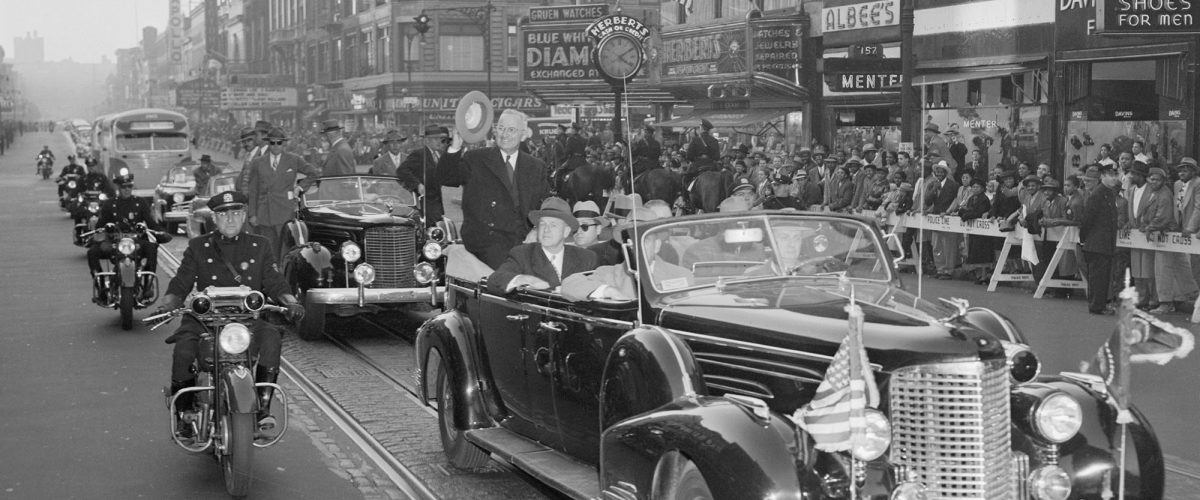Saturday, October 29. The 1948 presidential campaign was almost over; only Saturday and Monday remained because Harry S. Truman never campaigned on Sunday; he took seriously, “Remember the sabbath day to keep it holy.”
Up to that point in the campaign, Truman had not addressed the radioactive issue of civil rights. Philleo Nash, a Truman speechwriter, admitted the campaign had been advised to “tone it down” and to ignore the flaming racist rhetoric of Gov. Strom Thurmond and his Dixiecrats.
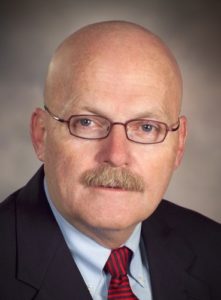
Harold Ivan Smith
Truman wanted to speak out on civil rights. But where and when? It was not enough just to desegregate the military. Black voters in large Northern cities and in California wanted to hear “one good reason” why they should vote Democratic rather than for Republican Thomas Dewey, who had been very progressive on civil rights as New York governor. Nash and others strategized that Truman should “keep everybody wondering and guessing right up to the end of the campaign” and then BAM! Let ‘er rip!
Nash clearly appreciated the critical demands of this speech; he had written a half-dozen drafts. The president should speak, in Nash’s words, “as what the old-timers would have called a ‘moral philosopher.” Not as a politician seeking another term but trailing so badly in the polls that some pollsters had stopped polling. Instead, Truman would speak as president and as an American.
The Dixiecrats, after storming out of the Democratic National Convention rather than support Truman, had assembled in Jackson, Miss., and had gotten themselves “riled up” by blistering rhetoric and apocalyptic doom. They cheered a snappy song, “Send Harry Back to the Farm,” ignoring the fact that Truman had not lived on a farm in 30 years. But then in politics, as now, facts were not essential.
Speaker after speaker exhausted themselves in the summer heat raging against Truman’s intent to destroy “our way of life,” meaning segregation. And, as delegates whispered, force our churches to admit Negroes.
The migrations
Tens of thousands of Southern negroes had migrated to large industrial cities such as Detroit, Chicago, New York and Philadelphia for work during World War II. But they had quickly discovered Yankees practiced a less-violent style of racism. As a result, some had migrated from the party of Lincoln the Emancipator to the Democratic Party. Critics loudly trashed Truman for “pandering” to potential Black voters.
“We should be doing what’s right even if we can’t be united about it.”
Nash, as he reworked drafts of the speech, felt pressured to produce a significant but nonpartisan speech. That day in Harlem, Truman would not give the Republicans “hell” (although many came expecting that feisty approach). Rather, in Harlem, Truman would take “the high road” and demand the nation do “the right thing” on civil rights. Truman reminded his staff the morning of the speech, “We should be doing what’s right even if we can’t be united about it.”
Harry Truman was the first U.S. president to campaign in Harlem, although a couple of his predecessors may have driven through Harlem. Security experts urged skipping Harlem, which they considered “an unsafe area.” In 1944, Republican Thomas Dewey had carried Harlem and expected to do so again. Apparently, he was too busy selecting his cabinet to do a drop in.
Technically, this stop was a religious event sponsored by the Council of Negro Clergymen to honor Truman with its Franklin Roosevelt Memorial Award. Truman’s staff had allotted 20 minutes for the stop. Certainly, no one anticipated that it would turn into a prayer meeting.
Location, location, location
The setting in Harlem was significant. Recently, a park had been renamed Dorrance Brooks Square to honor a dead Black soldier from Harlem who was the first Black serviceman killed in World War II. Private Brooks had been praised for his heroic actions at Pearl Harbor.
Still, campaign staffers Nash termed “the nervous nellies” cautioned the president that given the tight race in Tennessee, Kentucky and border states, he should not bring up civil rights. Accept the award and “get the hell out of Harlem.” The president dismissed their anxieties.
“Many people talk about freedom,” Truman noted. “But it’s the work that’s done for freedom that really counts.”
Truman intended to do something for freedom that afternoon in Harlem.
The president’s motorcade, escorted by 100 motorcycle police officers and two buses full of reporters, created quite a splash in Harlem.
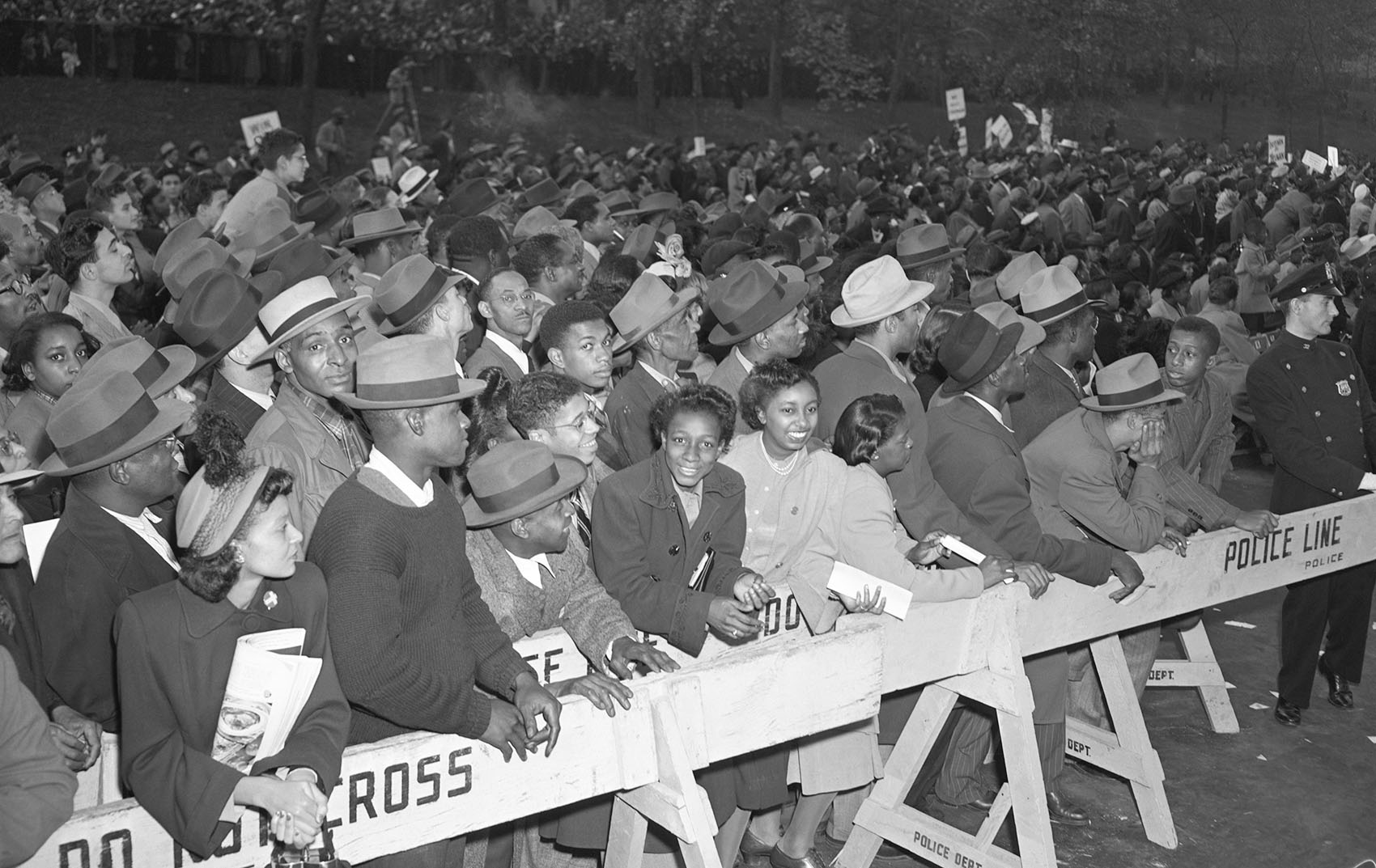
Part of the large crowd that heard an address by President Truman as he campaigned in Harlem in 1948. (Getty Images)
That crowd in the square
Arriving at the venue, Nash was stunned by the size of the crowd; they had begun gathering four hours earlier and had spent the intervening time singing and praying. Between 60,000 and 70,000, according to police estimates, had crowded into the park and surrounding areas.
Nash noted the large contingent of New York City Police supplemented with Immigration and Naturalization agents, and Customs agents the Secret Service had requested for the event. Nash smiled at college students energetically waving placards, “Give ‘Em Hell, Harry!” and “Pour It On, Harry!”
Truman arrived to greet the large group of Black clergymen and dignitaries crowded onto a small stage. Many more had wanted to be in the photo of the first president to come to Harlem; Nash had to soothe some wounded egos because the stage was not large enough to accommodate all the reverends. After Truman received the award, a clergyman delivered what Nash called “an extended prayer.” The reverend prayed and prayed and then prayed “some more.” The president, opening his speech, stated that he was “exceedingly grateful” for the award then confessed, “I hope I shall always deserve it.”
Although students shouted, “Give ‘em hell, Harry!” the crowd did not take up the chant. Nash recalled: “All of a sudden” this was “a silent crowd” which Nash considered ominous, if not frightening. This should have been a boisterous pro-Truman crowd. Nash, sitting with his back to the audience, second-guessed his final draft. Maybe he had been “wrong” to urge this speech. Maybe the aides who had said Harlem wasn’t “safe” were right. Finally, Nash to turned around to survey the crowd.
“Then I saw why they were silent. … Almost everybody in that crowd was praying, either with his head down or actually kneeling (emphasis mine). They were quiet because they were praying, and they were praying for the president, and they were praying for their own civil rights. And they thought it was a religious occasion.”
Rather than a last-ditch “get out the vote” Democratic rally, Truman himself commented, “This is, in my mind, a solemn occasion.”
“This is, in my mind, a solemn occasion.”
For too long Black citizens had been told to be patient because “change takes time.” Some in the crowd expected Truman to default to “Now, you need to be patient.” After all, Halloween and “trick or treat” was just two days away. Too many politicians had tricked Blacks by offering promises that burst like bubbles.
But Truman’s words reverberated: “Eventually, we are going to have an America in which freedom and opportunity are the same for everyone.”
Yes, the president had said eventually and everyone but did he mean it? Truman, to many Americans, sounded like FDR without the eloquence. Franklin Delano Roosevelt had been a lavish promiser but had delivered little, claiming he had to “go along” with the Southern Democrats in Congress “to get anything done.”
Truman followed up: “There is only one way to accomplish that great purpose, and that is to keep working for it and never take a backward step.” Never.
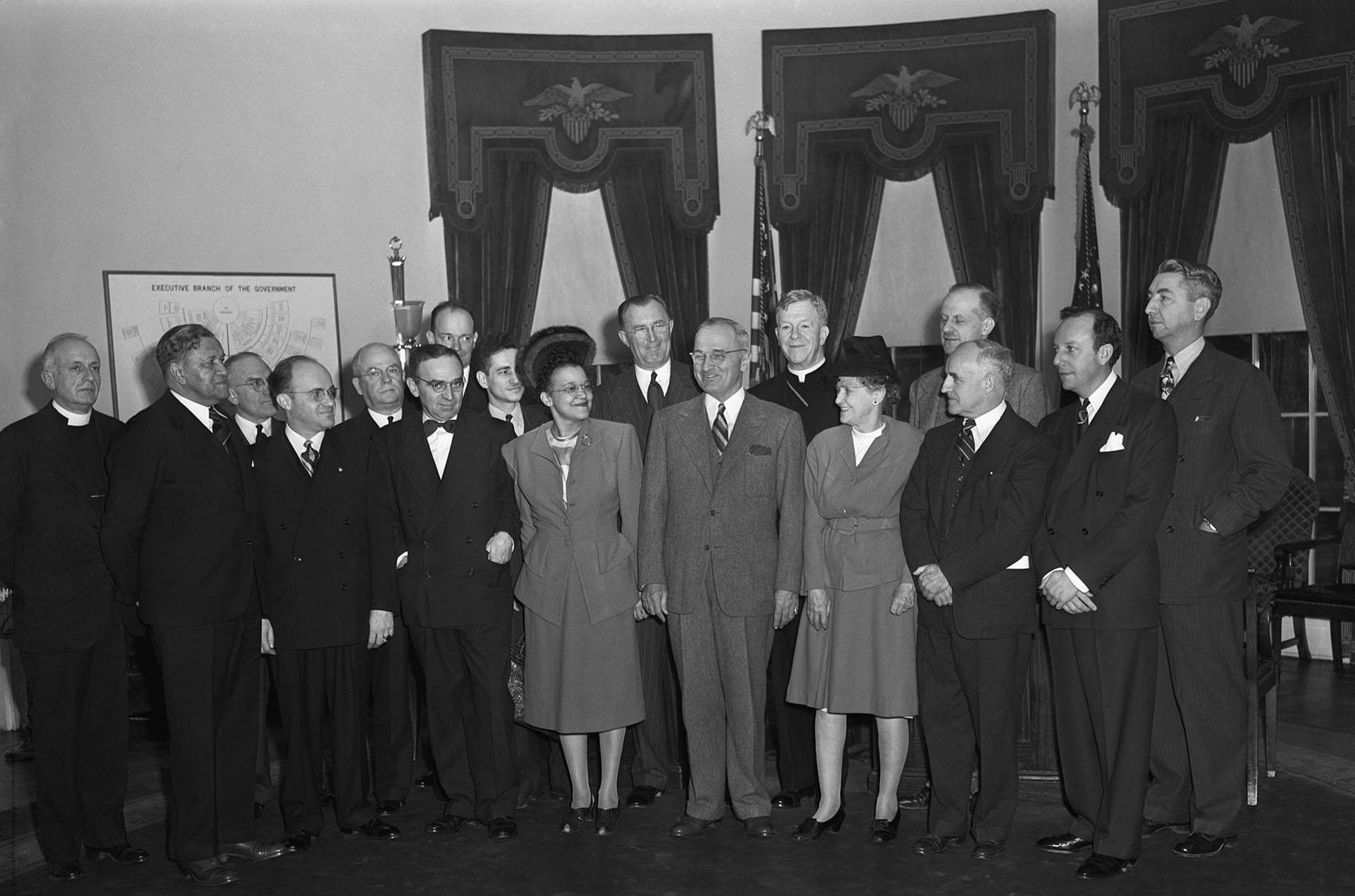
On Jan. 15, 1947, President Truman meets with new committee on Civil Rights. He told the group he hoped Congress would implement the Bill of Rights, and called for abolition of racial discrimination and religious bigotry. Left to right are assembled: Bishop Sherrill, Channing Tobias, Richard Potter, Rabbi Gittelsohn, John Dickey, Morris Ernst, Frances Metthews, James Craey, Mrs. S. Alexander, Charles E. Wilson, President Truman, Revrend Haas, Mrs M.E.Tilley, Boris Shiskin, Frank Graham, Charles Luckman, Tom C. Clark. (Getty Images)
Truman praised the Committee on Civil Rights which he had appointed to study ways to implement civil rights more aggressively. The committee, he insisted, had “the courage to state their conclusions frankly.”
Still some Blacks wondered: How do the conclusions of some “committee” impact me in Harlem or family members down in Biloxi or Birmingham? Truman conceded the ugly racial and religious intolerance that had resurfaced after World War II “threatened the very freedoms we had fought to save.” Now, Truman declared, borrowing the title of the committee’s report, the task was “to secure these rights” from Mississippi to Michigan, from South Carolina to Oregon.
Truman declared the founders had stated that “all citizens are equal before the law.” Well then, what was so confusing about the word all?
Moreover, the founders had promised “the federal government has a duty to guarantee to every citizen equal protection of the laws.” All and every were radical words in 1948.
Truman’s committee had done more than parrot the ideals of the founding fathers, many of whom, Truman acknowledged, had been enslavers. It was time, the committee insisted, to make good on the founders’ promises and “to make them a living reality for every American, regardless of his race, his religion or his national origin.” A living, generous reality.
For Harry Truman, feisty Missouri Baptist, civil rights was a spiritual challenge.
Truman envisioned the kind of freedom “that comes when every man has an equal chance for a job — not just the hot and heavy job — but the best job he is qualified for.” Freedom that is reality “when every American boy and girl has had an equal chance for an education.” Freedom that insures “every citizen has an equal opportunity to go to the ballot box and cast his vote and have it counted” not just in the North but in rural hamlets and villages and wide-spots-in-in-the road across the Southland.
Truman wanted an American where everyone had “complete confidence in one another and from complete faith in the working of our democracy.”
President Truman paused, “It means that you and I must act out what we say in our Constitution and our Bill of Rights.”
For Harry Truman, feisty Missouri Baptist, civil rights was a spiritual challenge.
Truman closed with a solid promise: “For my part, I intend to keep moving toward this goal (of equal rights and equal opportunity) with every ounce of strength and determination that I have.”
Thousands walked out of Dorrance Brooks Park feeling like they had been in church and Brother Truman had been “the preacher.” Michael Gardner recalled, “The crowd of mostly African Americans … acted more like participants in a religious revival meeting than voters at a campaign rally.” No few scolded friends who had missed the rally.
The memory of that day
In the decades ahead, elderly individuals asked grandchildren and great-grandchildren, “Have I ever told you about the time the president — the president of the United States, Mr. Harry Truman — came to Harlem? And we had a prayer meetin’?”
No few Harlem residents, from time to time, walked by that square, stopped and reminisced, “Right there. That’s where Mr. Truman spoke. I was there. I will never forget what he said and how we prayed.”
Eleanor Roosevelt and Mayor William O’Dwyer of New York, both had been seated on the platform behind Truman. As veteran politicians, they had seen a lot. But they never had seen thousands praying on their knees as the president spoke.
That day, Truman, dismissed by too many, in Time’s words as “the Little Man from Missouri,” came to Harlem and shared his big soul.
In Harlem, Truman used “every” nine times and “all” four times. Each word had resounded across that park like a clap of summer thunder.
Gardner summarized the event: “For this audience, it was indeed a momentous event. For an incumbent president (behind in the polls) to journey to Harlem — the urban heartland of Black America — to deliver a speech that frankly acknowledged the panoply of civil rights abuses that continued to restrict their lives and the lives of their relatives throughout the country.”
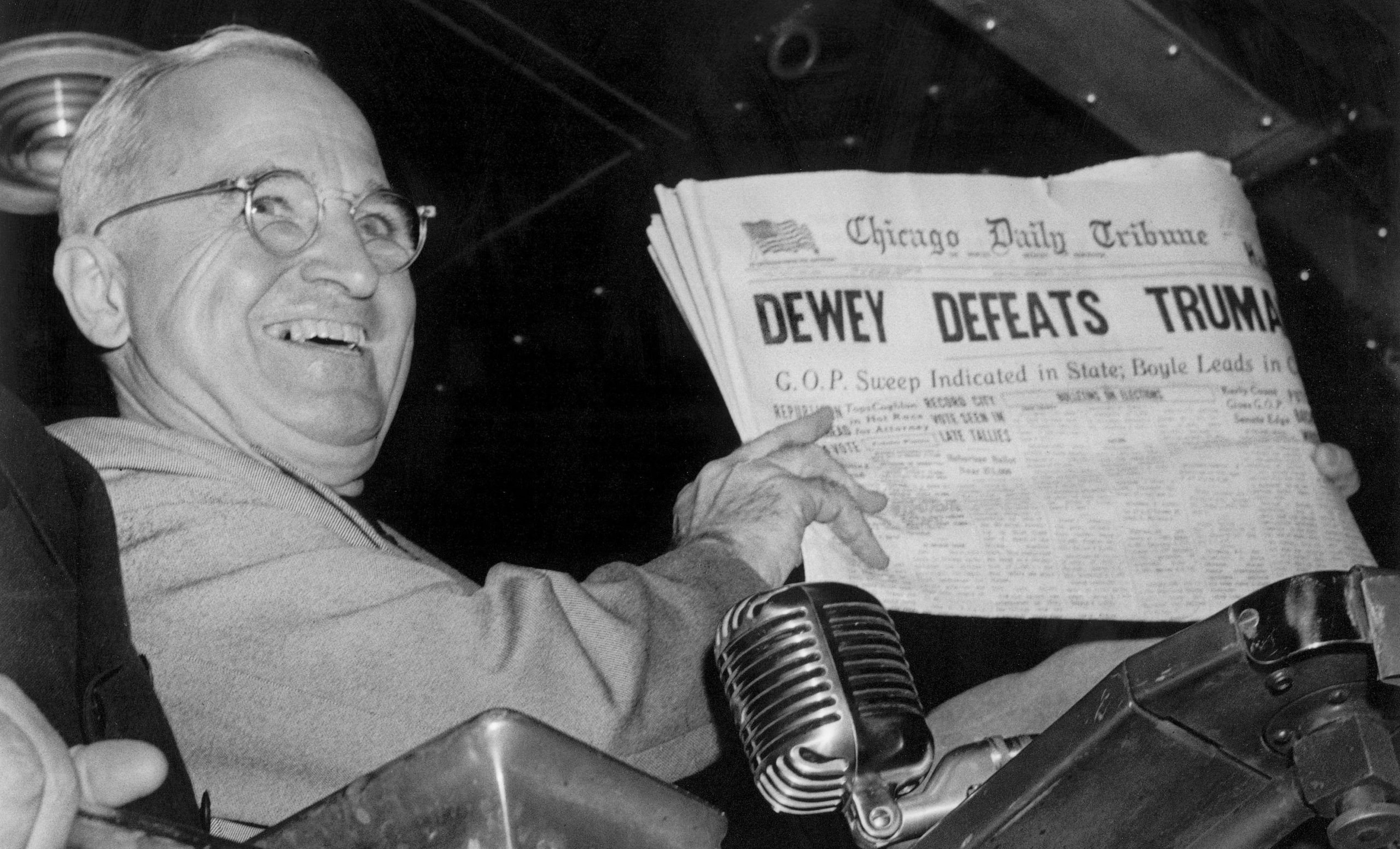
In this Nov. 4, 1948, photo, President Harry S. Truman holds up an Election Day edition of the Chicago Daily Tribune, which, based on early results, mistakenly announced “Dewey Defeats Truman.” (AP Photo/Byron Rollins File)
Election surprise
Truman lost New York the following Tuesday. But he won the election.
That late October afternoon, Harry Truman did not care how loudly his fellow Baptist, Gov. Thurmond and his Southerners would howl at his words. Wherever every or all appeared in the Constitution, Thurmond and his elk were quick to insert an asterisk. Now it would be up to the American people to decide if the founders’ “every” meant every.
Because of the actions of one courageous Baptist who was willing to commit to do the right thing and risk losing the election, America took a step forward. Historian William Leuchtenburg concluded, “The South, and the nation, would never be the same again.”
Truman did not lead America into the promised land of equality, as too many Southern segregationists served as committee chairs in the Senate and House. But Truman helped America actively imagine taking a giant step toward becoming “a more perfect union.”
Oh, course, down south of the Mason-Dixon, the other Baptist in the 1948 race went ballistic. Without knowing what Truman had actually said, he ignored the implications of “Thou shall not bear false witness.” Gov. Thurmond worked himself into a frenzy, snarling: “Truman’s campaign talks were tinted red. …. In his Harlem address of last Friday (wrong day) he came out squarely for his Red-inspired civil rights program.”
“Red” was that era’s dog whistle for communist.
Unfortunately, too many others took up Thurmond’s rhetoric, including no few Baptist preachers and Sunday school teachers. Too many of those lambasting Truman considered themselves born-again, Bible-believing, church-goin’ Baptists who hated Truman for interfering with “things as they always had been.” And things “as they were.” And the way they wanted to keep things. A time when Blacks knew kept “their place.”
That day in Harlem, neither Truman nor the thousands in the Dorrence Brooks Square could have imagined that someday a president would locate his post-presidency offices in Harlem. Or that someday a Black man would spend two terms in the White House. Or that someday a Black woman would serve as vice president just as Truman had before FDR died.
Is it realistic, given the ugliness and invective of a prolonged presidential campaign, to hope that sometime before November 2024, some political rally, like the one that happened 75 years ago on Oct. 29, 1948, might turn into a prayer meeting?
It’s hard to imagine thousands of voters on their knees praying. Actually, it’s easier to stick voter’s guides on the windshields of cars parked in the parking lots of a “Bible-believing” church. And it is hard to pray if you’re worn out from bearing “false witness.”
Harold Ivan Smith is thanatologist and independent scholar. For 18 years he served on the teaching faculty of Saint Luke’s Hospital in Kansas City, Mo. He earned graduate degrees from Scarritt College, Vanderbilt University, and a doctor of ministry degree from Asbury Theological Seminary. His writings include A Decembered Grief, On Grieving the Death of a Father; Grieving the Death of a Mother; When You Don’t Know What to Say; When a Child You Know Is Grieving, When Your People Are Grieving: Leading in Times of Loss.
Related articles:
Will you take The Truman Challenge in 2023? | Opinion by Harold Ivan Smith
Southern Baptist support for Israel has traveled a winding road, scholar explains


